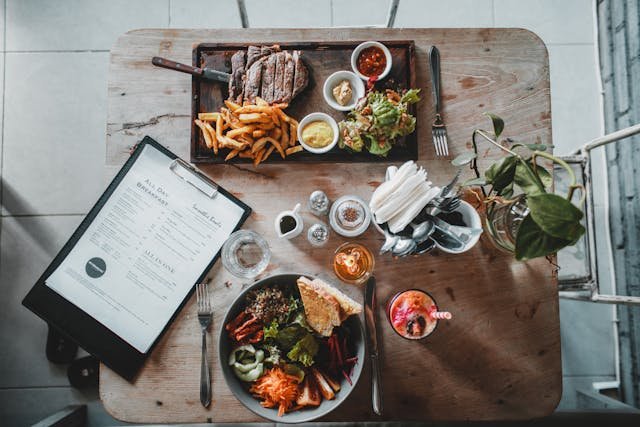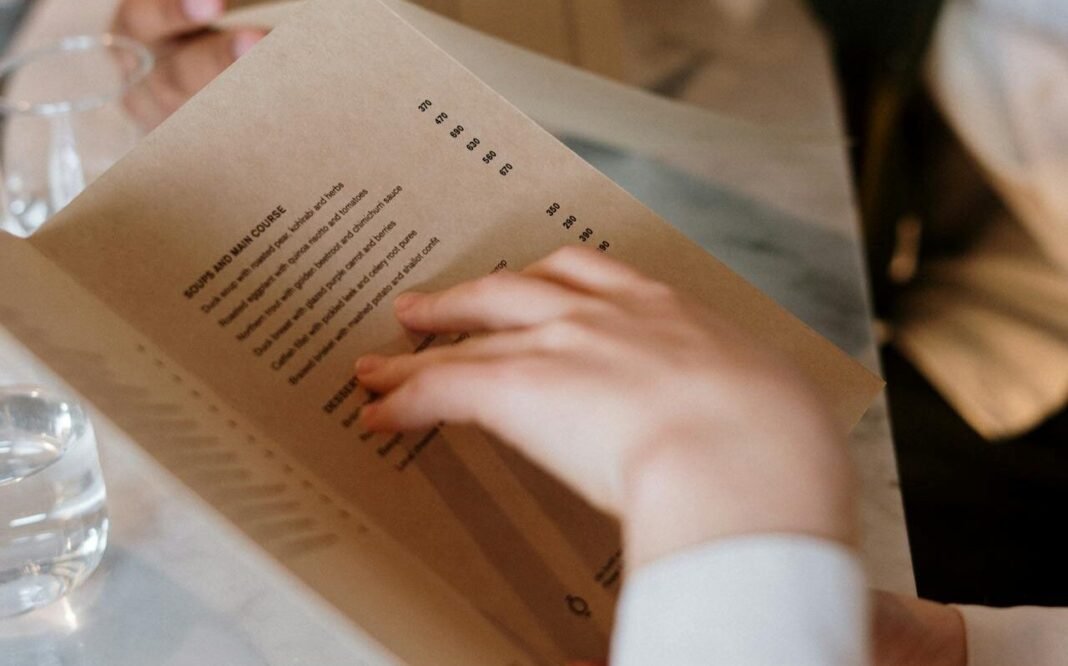Why Menu Knowledge Matters
Managing a restaurant is more than just cooking good food. It’s also about making sure your staff knows the menu inside out. All of those working in the food and beverage industry would agree that menu knowledge is very important because it helps staff answer customer questions, make recommendations, and give great service. If your staff knows every dish well, it makes the whole experience smoother for everyone. Imagine walking into a nice restaurant, excited to try something new. You spot a dish on the menu that sounds interesting, but you’re not sure what’s in it.
So, you ask the waiter, “What’s in the Chicken Alfredo?” The waiter pauses, looks confused, and says, “Uh… I think it has chicken and… maybe some pasta? I’m not really sure.”
That’s not nice, right? You end up feeling unsure about ordering it and maybe even a bit frustrated. Situations like this happen when waiters don’t have solid menu knowledge. It not only makes guests feel uncomfortable but also shows a lack of professionalism. When your staff knows the menu inside out, they make guests feel confident about their choices. That’s why menu knowledge is so important. When your staff can confidently describe every dish, it shows professionalism and makes guests feel taken care of. Plus, it can boost sales since confident recommendations are more convincing.

Creative Ways to Teach Menu Knowledge
Just handing your staff a printed menu and telling them to memorize it isn’t enough. The first step in teaching menu knowledge is training. Don’t just give your staff a menu and expect them to memorize it. Make it interactive and fun. Go over every dish, explaining what’s in it, how it’s cooked, and why it’s special. Make sure they understand the flavors and the ingredients. It’s also helpful to let them taste the dishes. Tasting helps them remember better and describe flavors more accurately. Here are some fun and creative ways to make sure your team gets comfortable with the menu items.
- Taste Testing Sessions
One of the best ways to learn is by tasting. Hold food-tasting sessions where your staff can try every dish on the menu. While tasting, talk about the ingredients, flavor profiles, and textures. This helps staff connect the taste to the description, making it easier to remember. Involve as well the chef who cooked the dish so he can be the one talking about whole the process and describing the ingredients.
- Menu Knowledge Games
Turn learning into a game! Create flashcards with the name of the dish on one side and its ingredients and description on the other. Have staff quiz each other or hold small competitions to see who remembers the most. You can even offer small prizes to make it more fun.
- Role-Playing Scenarios
Have your team practice with each other by pretending to be customers asking questions. One person plays the customer and the other the server. This helps staff get used to answering questions on the spot, boosting confidence and reinforcing menu knowledge.
- Daily Dish Highlights
Every day, pick one or two dishes to focus on. At the start of each shift, quickly go over these dishes with your staff. Describe the ingredients, flavors, and any interesting facts. This way, staff can gradually build their menu knowledge without feeling overwhelmed.
- Visual Learning Aids
Some people learn better with visuals. Create posters or charts that show the dishes with pictures, descriptions, and key ingredients. Hang them in staff areas so they’re always in view. Visual reminders can make a big difference in retaining menu knowledge.
- Encouraging Personal Favorites
Ask your staff to pick their favorite dishes and learn everything about them. When servers genuinely love a dish, they’ll naturally be more enthusiastic and confident when describing it to guests. Plus, personal recommendations come across as more authentic.
Don’t just assume your staff knows everything after one session. Regularly check in and ask questions to gauge their knowledge. If someone seems unsure, offer extra help without making them feel embarrassed. Positive reinforcement goes a long way in keeping morale high.
Teaching menu knowledge doesn’t have to be boring or difficult. By making learning interactive and ongoing, your staff will feel more confident and prepared. Plus, customers will notice the difference when your team can answer questions and make recommendations without hesitation. Investing in menu knowledge is worth it, and it pays off in better service and happier guests.
All the images in this article are from Pixabay (not copyrighted and free for commercial use).






